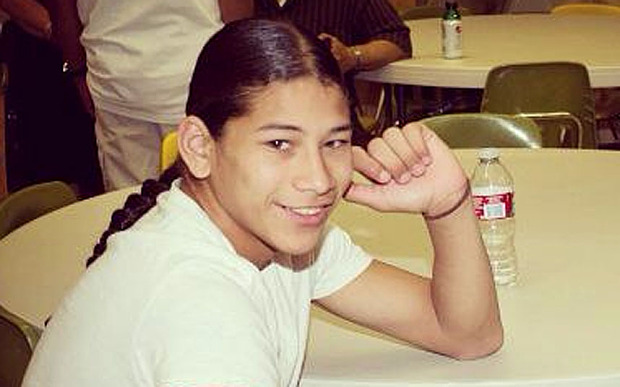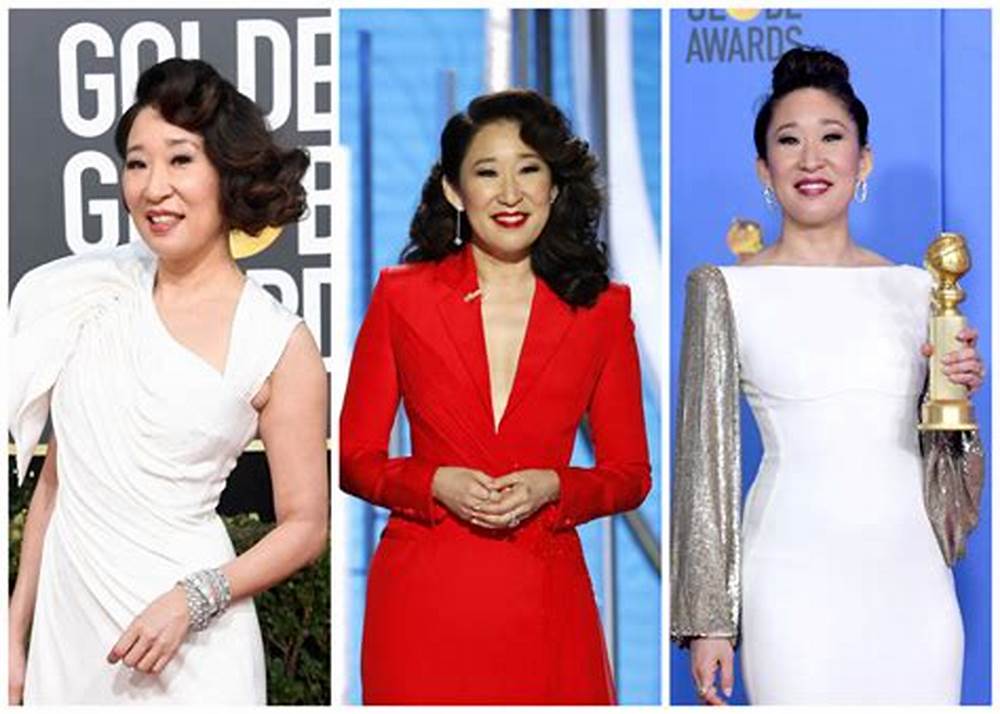
Last Friday, it happened again; and a nation where school shootings have become terrifyingly commonplace struggled once more to rouse ourselves out of our cynical numbness to muster the same level of horror, outrage and self-reflection that characterized the early responses to Columbine. But, with news of mass school shootings seemingly a permanent fixture in today’s headlines, it seems increasingly difficult for America to recognize that this “new normal” is anything but.
Yet, we need to find the energy to remain outraged and horrified. We need to keep questioning not only why these shootings are happening, but how pervasive and pathological our ideas of “normal” really might be.
Last Friday, 14-year-old Jaylen Fryberg brought a legally purchased gun to the cafeteria of Marysville-Pilchuck High School and opened fire on a table of classmates including two male cousins and three female friends — none of them older than 15. All five sustained gunshot wounds — most to the head — and as of this morning, two students are dead along with Fryberg (of a self-inflicted gunshot). Although Fryberg’s motives remain largely unknown, early coverage from Fryberg’s classmates reveal hints of a story all-too-familiar: yet again, a young man was so angered and devastated by having his romantic advances rejected that he turned to violent retribution, and yet again, it is young women and men alike who pay the price.

Schoolmates of Fryberg and his victims report that Fryberg — a popular young freshman who had recently been named the school’s homecoming prince — may have been distraught after a break-up with a girl over the summer. That girl — likely Zoe Galasso, who succumbed to her gunshot wounds this morning — recently began dating Fryberg’s cousin, Andrew, who was also targeted in Friday’s attack.
Although most witness accounts fail to reveal signs that Jaylen Fryberg was troubled by his romantic life, in the days leading up the attack, Fryberg’s Twitter account included several ominous messages and sub-tweets that suggest that Fryberg was enraged by his recent breakup.
Alright. You fuckin got me…. That broke me???
— Jaylen Fryberg (@frybergj) October 21, 2014
It breaks me… It actually does… I know it seems like I'm sweating it off… But I'm not.. And I never will be able to…???
— Jaylen Fryberg (@frybergj) October 21, 2014
Late last week, Fryberg tweeted his final message:
It won't last…. It'll never last….
— Jaylen Fryberg (@frybergj) October 23, 2014
While much of this is still speculation, it’s hard not to connect the dots: Fryberg felt violent retribution was necessary to restore his manhood in the eyes of himself and his peers, and that he was justified in punishing a woman who rejected him.
In the aftermath of the Isla Vista shooting last year, I wrote a post about “misogylinity”, a term I coined to describe the intertwined relationship between mainstream masculinity and female sexuality.
Misogylinity asserts that masculinity is defined and authenticated by a (heterosexual) man’s sexual ownership of women, where masculinity enjoys a linear relationship with the conquest of a conventionally beautiful woman (or of many such women). Conversely, misogylinity argues that the man whose romantic or sexual advances are rejected by a woman should see this as an inadequacy in his own masculinity.
Let me be clear: although I argue that misogylinity is an undercurrent in many recent mass shootings (up to and including the heinous crimes of Eliot Rodger last year), misogylinity is not limited to the realm of the overt sexist and misogynist. Misogylinity is not a fringe idea. I assert that misogylinity describes the popular, pervasive ideas of masculinity in today’s society. When Axe asserts that its body spray can cause women to throw themselves sexually at a malfunctioning android, that is misogylinity. When the Abercrombie & Fitch model is draped in scantily-clad women to sell rugged t-shirts to teenaged boys, that is misogylinity. When Chris Pine’s James Kirk or James Pratt’s Peter Quill beds one (or two) beautiful and largely vapid multi-coloured space aliens in the obligatory “morning after” scene as a dogwhistle nod to these heroes’ idealized masculine prowess, that is misogylinity. When the male coming-of-age story inexorably involves the discovery of masculinity hand-in-hand with “winning the attention of the pretty girl”, that is misogylinity. When the Hollywood geek (often, but not always, portrayed as Asian American) is signaled by scenes of sexual and romantic rejection or frustration, that is misogylinity.
The problem with misogylinity is obvious: misogylinity relies upon women as the source of masculine authentication, and it traps men in an unceasing pursuit of that ideal. It limits masculinity as accessible only to the heterosexual and the gender-normative. It demands a reciprocation between men and women wherein chivalrous attention is exchanged for female approval, and when the woman breaks this perceived contract — a contract that is both fundamentally unjust and dehumanizing — by asserting her agency and rejecting an unwanted advance, misogylinity justifies a feeling of betrayal and anger.
In short, misogylinity is an entitlement complex, rooted in the pathological belief that the “masculine” man is entitled to the sexuality of women. Denied that, some young men respond with exactly the sort of outrage and violence we would expect of the misguidedly entitled; they turn their rage against that which they feel entitled to: women.
And so, it is (in part) because of misogylinity that Eliot Rodger reacted with racist and misogynistic violence against women (as well as against his male roommates) for his perceived sexual and social rejection. It is (in part) because of misogylinity that Raymond J. Clark murdered graduate student Annie Le in 2009 — stuffing her corpse inside a wall — after she rejected his sexual advances. It is (in part) because of misogylinity that Mary Spears was shot in the head earlier this month after rejecting the advances of a man at a local dance club in Detroit. And, it is (in part) because of misogylinity that Jaylen Fryberg believed that a young 14-year-old girl deserved death for breaking up with him.
There are countless more stories of women paying the price of misogylinity’s assertion that men are entitled by virtue of their masculinity to a dominant sexuality over women. Whether it is the headline-grabbing murders or the more commonplace (yet still damaging) stuff of physical, sexual and emotional violence, misogylinity asserts a logic (where there should be none) in punishing women for agency over our own sexuality. Misogylinity excuses the violence through the unspoken agreement that it is the woman’s fault for the violence committed against her. And, it is no longer hyperbole to say that the price of misogylinity is paid in the lives of young women — and young men, too.
One further must ask about the impact of misogylinity on the intersectional male identity: could this anger be exacerbated when additional obstacles — race and sexual orientation — further challenge access to masculinity and male privilege in the non-White and/or non-straight man? Could hypermisogylinity arise in some men as a means of overcompensation.
It goes without saying that not all men — or even most men — are going to commit violence against women because of masculinity or misogylinity; to argue such a hard-lined generalization would be foolish. But it also goes without saying that our current ideas of masculinity are clearly toxic, and demand closer examination.
Over the weekend, an editor at Mommie Dearest reportedly asked her Facebook:
“Instead of a national discussion about guns, let’s have one about how we raise boys to think a girl rejecting him is the worst thing in the world [and] he must resort to violence to restore his masculinity. How about that?”
Both conversations are long overdue, yet the price of our continued silence is becoming more and more obvious every single day. The longer we refuse to question the effects of misogylinity on an entire generation of young men and women, the longer we allow these young men and women to bear the full and deadly cost of our silence.
Update: CNN is now reporting that Fryberg lured his victims to the cafeteria with text messages suggesting they eat together, before opening fire. This is relevant to this post in that it establishes that Fryberg did not target his victims randomly, and had instead planned his attack; these details are consistent with — if not definitive proof of — the narrative presented in this post that Fryberg conducted the shooting as a form of revenge.

